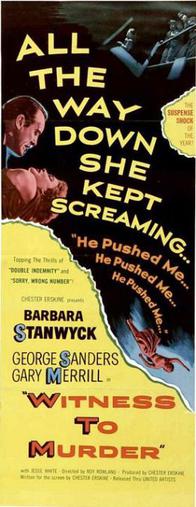|
Workers Vanguard No. 1018
|
22 February 2013
|
Black History Month
Class, Race and the Black Struggle in the U.S.
Claude McKay, 1922
Claude McKay, a Jamaican-born poet active on the left in the U.S.
and Britain, traveled to Soviet Russia for the Fourth Congress of the Communist
International in November 1922. In his presentation at the Congress (reprinted
in “Blacks and Bolsheviks,” Black History and the Class Struggle No. 5,
February 1988), McKay stressed the centrality of black oppression to American
capitalism and criticized American Communists for not adequately addressing this
issue. It took the intervention of the Comintern to get the American Communists
to begin to actively fight for black rights.
At the time of the Congress, he drafted notes about the situation
of black people in the United States, the Caribbean and Africa. The notes are
unsigned, but McKay referred to them in other correspondence. We print below
excerpts from the sections on the black struggle in the U.S., which we obtained
from Tamiment Library at New York University. The original is in the Russian
State Archive of Socio-Political History (RGASPI) in Moscow. In his notes, McKay
refers to the African Blood Brotherhood, a Harlem-based organization, mainly
comprising Caribbean immigrants, whose leadership had recently joined the
American Communist Party.
* * *
During the World War the economic status of the Negro Race in the
New World underwent a swift transition for the better. Especially was this the
case in the United States where, on account of the giant war industries and the
shutting down of immigration, the services of Negro workers were greatly in
demand in the northern industrial zone. During this period it is estimated that
over 500,000 Negro workers left the South for jobs in the less hostile
atmosphere of the North.
Along with the improvement in their economic status came a great
wave of emotional racialism, aroused in part by the wrongs suffered by the race
and the sacrifices it was called upon to make for “World Democracy,” as well as
by the fine democratic phrases with which the Entente statesmen were gassing the
credulous liberals of their own countries and misleading the peoples of the
colonies. This racialism among the Negro workers at first took the form of a
proletariat movement but has been to a great extent perverted by subsequent
activities of opportunists and charlatans with their cowardly compromises and
surrenders and their grafting of all sorts of stock schemes upon the mass
movement....
The prey of unscrupulous leaders who glibly promised everything but
accomplished nothing save the periodical emptying of the pockets of their
credulous followers, the Negro masses are discouraged and suspicious, yet there
are organizational possibilities on a wide scale for any organization that can,
first, win their confidence and, second, push energetically the campaign of
organizing and, third, keep up interest in the organization.
The Negro masses are leavened by an increasingly large body of
race radicals and class radicals. The former are
Negroes who, while roused to thought and action by the wrongs of the race, have
not yet recognized the essential class nature of the struggle, nor the exact
cause and source of their oppression, which they blame indiscriminately upon the
entire white race. They are, however, generally inclined to side with and follow
the leadership of the class radicals who, fully cognizant of the value of race
radicalism for rousing the masses and as a natural and necessary step toward
class radicalism, have not been slow in utilizing it and even in helping in its
development.
Comparatively few Negro workers are in the unions for the reason
that, until recently, they were almost universally barred from the ranks of
Organized Labor. However, several thousand are now unionized. Some in the
regular unions, but many in segregated unions which are generally affiliated
with the national bodies.
Most of the class radicals are to be found in the ranks of the
“African Blood Brotherhood” and the “Friends of Negro Freedom”—the latter an
organization backed by the Socialist Party of America; the former said to have
Communist tendencies.
A large group of race radicals are also in the African Blood
Brotherhood (which makes a race as well as a class appeal); and a larger group
in the so-called “Garvey Movement” of “Universal Negro Improvement Association
and African Communities League.” The true race radical should not be confused,
however, with the motley crowd of fanatics, emotionalists, title and tinsel
worshippers who make up the huge mass of the Garvey organization....
The petit-bourgeoisie, with whom the race is honeycombed, find
expression chiefly in the “National Association for the Advancement of Colored
People,” in which a group of bourgeois gentlemen (colored and white) and
gentlemen who, while lacking the bourgeois gold, carry around the bourgeois
psychology, dominate a large but not compactly organized or effectively
functioning body of workers and professionals. The domination of the bourgeoisie
is here more open and complete than in the Garvey Movement which, while cursed
with petit-bourgeoisie for leaders, has a rank and file wholly made up of
workers, and the bourgeoisie in the latter movement have been accordingly forced
to resort to camouflage tactics. The compact organization of the Garvey
Movement, together with the mighty enthusiasm and blind fanaticism of most of
its membership have made it in the past more of an obstacle to the proper
prosecution of the Negro Liberation Struggle than has been the National
Association for the Advancement of Colored People....
As is well-known, the Negro workers are the most viciously
oppressed and poorly paid of any group of workers in the United States. No
matter what a Negro’s ability and fitness there are positions which he may not
fill and trades whose doors are closed to him. As a rule, only the most menial
jobs are open to him during normal times. Made to believe that the antagonistic
attitude of Organized Labor is wholly responsible for his exclusion from the
better-paid industries, he becomes a willing—and often a joyous—tool of the
Interests, and a scab in times of crisis for Organized Labor. He knows that in
numerous instances White Labor opposes his employment. He knows, too, of
frequent and widely heralded “philanthropies” to his race—by way of subsidies to
Negro colleges, etc.—on the part of the White Bourgeoisie and being at least as
backward as White Labor, which by its silly prejudices splits the ranks of
Labor, he is not able to see the facts as they really are.... His doubts are
further increased when he is shown that the white bourgeoisie controls the
press, the schools, the churches, the theatres, etc., in which race prejudice is
engendered and promoted....
And this leads naturally to a consideration of the present
aspirations of the Negro Race. The vast masses of the race in America have only
the very simplest aspirations, viz: to be permitted to live and eke out a mean
and miserable existence in peace. Of the various groups that rise above this low
level, the aspirations of some are confined to safety of life and property and
the protection of their women from insult and rape at the hands of white men.
Other groups would have political equality in addition; while the most
progressive groups demand nothing less than full equality: political, economic,
racial; and the abolition of human exploitation.






